Building inspections often remain in the shadows of real estate transactions, yet they serve as the unsung heroes safeguarding the interests of property owners, investors, and managers alike. This blog post will unravel the critical role that building inspections play in the real estate world, outlining their importance, benefits, processes, and future. Whether you’re a seasoned investor or a building manager navigating the complexities of property transactions, understanding the essence of building inspections is essential.
The Unsung Importance of Building Inspections
In the dynamic realm of real estate, building inspections are the key to ensuring that properties meet safety, quality, and compliance standards. These inspections act as a safeguard against potential hazards, protecting both the physical structure of a building and the financial investments tied to it. For property owners and managers, an inspection provides peace of mind, assuring them that their property stands on a solid foundation.
Building inspections serve as a critical checkpoint in real estate transactions, identifying any hidden issues within a property. These inspections can reveal structural weaknesses, electrical problems, or plumbing failures that could lead to costly repairs if left unaddressed. By ensuring compliance with local building codes and regulations, inspections protect stakeholders from potential legal liabilities and fines.
The importance of building inspections extends beyond individual properties, influencing entire neighborhoods and communities. Well-inspected and maintained buildings contribute to the overall safety and aesthetic appeal of an area, ultimately enhancing property values and attracting potential buyers and investors.
Ensuring Safety, Quality, and Compliance
Safety remains a top priority for stakeholders in real estate transactions, and building inspections are the frontline defense. An inspection can uncover safety hazards such as faulty wiring, gas leaks, or structural vulnerabilities that may pose risks to occupants. By addressing these issues early on, inspections prevent accidents and ensure a safe environment for residents and visitors.
Quality assurance is another crucial aspect of building inspections. They provide an unbiased evaluation of a property’s condition, highlighting any areas that require maintenance or improvement. This objective assessment allows property owners and managers to make informed decisions about necessary repairs and upgrades, ultimately enhancing the property’s value and marketability.
Compliance with building codes and regulations is not only a legal requirement but also a mark of professionalism and responsibility. Inspections ensure that properties adhere to these standards, providing assurance to buyers and investors that the property meets all necessary criteria. This compliance fosters trust and confidence between parties in a real estate transaction.
Reaping the Benefits for Stakeholders
For property owners, building inspections offer a comprehensive understanding of their investment’s condition, enabling them to address any issues proactively. This knowledge empowers owners to maintain their property in optimal condition, increasing its lifespan and value. Additionally, inspections provide a sense of security and pride, knowing that their property is safe and sound.
Real estate investors gain valuable insights from building inspections, allowing them to assess the true value of a potential investment. Inspections reveal any hidden defects or maintenance needs, enabling investors to negotiate better deals or walk away from risky properties. By making informed decisions, investors can maximize their return on investment and avoid unforeseen expenses.
Building managers also benefit from regular inspections, as they provide a clear roadmap for ongoing maintenance and improvements. Inspections identify areas that require attention, allowing managers to prioritize tasks and allocate resources efficiently. This proactive approach ensures that buildings remain in compliance with regulations and continue to attract tenants and buyers.
Uncovering Common Issues
During a building inspection, inspectors often uncover a range of issues that can significantly impact a property’s value and safety. Structural problems, such as cracks in the foundation or walls, can compromise the integrity of a building and require immediate attention. Identifying these issues early on allows for timely repairs, preventing further damage and costly renovations.
Electrical and plumbing problems are also common findings during inspections. Faulty wiring, outdated systems, or leaks can pose serious safety risks and lead to expensive repairs if left unaddressed. Inspectors provide detailed reports on these findings, enabling property owners to take corrective measures and ensure the safety and functionality of their property.
Pest infestations, such as termites or rodents, are another critical issue that inspections can uncover. These pests can cause extensive damage to a property’s structure and compromise its integrity. By identifying infestations early on, property owners can enlist professional pest control services to mitigate the damage and protect their investment.
Navigating the Inspection Process
Conducting a building inspection involves several key steps to ensure a thorough evaluation of a property. The process typically begins with a pre-inspection agreement between the inspector and the client, outlining the scope of the inspection and any specific areas of concern. This agreement sets clear expectations and ensures that both parties are aligned on the inspection’s objectives.
During the inspection, the inspector will conduct a visual examination of the property’s exterior and interior, including the roof, foundation, electrical systems, plumbing, HVAC systems, and more. Specialized equipment, such as moisture meters or infrared cameras, may be used to detect hidden issues that are not visible to the naked eye.
After completing the inspection, the inspector will compile a detailed report outlining their findings and recommendations. This report serves as a valuable resource for property owners, investors, and managers, providing them with a clear understanding of the property’s condition and any necessary repairs or improvements.
Impact on Property Value and Negotiation
Building inspections play a pivotal role in determining a property’s true value and influencing negotiation strategies during real estate transactions. A thorough inspection can either validate a property’s asking price or reveal issues that warrant a reduced offer. For buyers, this information is crucial in making informed decisions and avoiding overpaying for a property with hidden defects.
Sellers, on the other hand, can use inspection reports to address any issues before listing their property, potentially increasing its market value. By proactively resolving problems, sellers can present their property in the best possible light, attracting more buyers and commanding higher offers.
Negotiation leverage is another benefit of building inspections. Buyers armed with detailed inspection reports can negotiate repair credits or price reductions, while sellers can use proof of recent inspections and repairs to justify their asking price. This transparency fosters trust between parties and facilitates smoother transactions.
Note: Alert Building Inspection Offer Building inspection Service at $299 in Auckland. If you are buying property in Auckland area book your inspection Now
The Future of Building Inspections
The future of building inspections is poised for transformation, driven by advancements in technology and data analytics. Innovations such as drones, AI, and IoT devices are set to revolutionize the inspection process, enhancing accuracy, efficiency, and accessibility.
Drones equipped with high-resolution cameras can conduct aerial inspections of roofs and hard-to-reach areas, providing inspectors with valuable insights without the need for ladders or scaffolding. This technology not only improves safety but also reduces the time and cost associated with traditional inspections.
AI-powered tools can analyze vast amounts of data collected during inspections, identifying patterns and trends that building inspectors may overlook. This data-driven approach enables more accurate assessments and predictions, empowering property owners and investors to make data-informed decisions.
IoT devices embedded in buildings can provide real-time monitoring of critical systems, alerting property managers to potential issues before they escalate. This proactive approach to maintenance not only extends the lifespan of building components but also enhances safety and efficiency.
Building inspections are the unsung heroes of real estate transactions, safeguarding investments and ensuring the safety, quality, and compliance of properties. For property owners, investors, and managers, these inspections provide invaluable insights and empower informed decision-making.
In the rapidly evolving world of real estate, building inspections play a critical role in maintaining property values and facilitating smooth transactions. As technology continues to advance, the future of building inspections promises even greater efficiency and precision.
To stay ahead in the competitive real estate market, it’s essential to prioritize building inspections and leverage their benefits. Whether you’re buying, selling, or managing a property, a thorough inspection is your key to success and a thriving investment.

